It’s the lederhosen that grabs you first. Two gents were walking down the street ahead of us in full Alpine rig: long socks, collarless loden jackets, and hunting hats decorated with what looked like shaving brushes. Among the flowerbeds and fountains that surround the main theatre of the Bad Ischl Lehar Festival a posse of young women crossed our path, all wearing embroidered dirndls and laughing. By the time we took our seats in the auditorium, we were grappling with a deeply un-British notion: that none of this was ironic. We weren’t at Glyndebourne any more.
But if you love the much-mocked art of Viennese operetta, a forgotten spa town at the far end of the Salzkammergut is exactly where you want to be. The genre is almost extinct in the UK: you can go years without encountering anything by Johann Strauss other than Die Fledermaus, anything by Lehar apart from The Merry Widow or anything at all by Kalman, Suppe or Leo Fall. Yet according to Operabase (and to the indignation of opera bores) Lehar and Kalman are currently the world’s most-performed 20th-century opera composers after Puccini and Richard Strauss, easily outstripping Britten, Janacek and poor old Alban Berg. You can’t keep a good tune down, and even in Britain folk who’ve never seen Lehar’s Das Land des Lächelns or Paganini can still hum ‘You Are My Heart’s Delight’ or ‘Girls Were Made to Love and Kiss’.
To experience the shows themselves, though, you’ve got two options. You can listen to badly presented recordings on niche labels, often without librettos or translations (operetta lyrics are routinely deemed too trivial to matter). Or you can travel. As the holiday residence of the Emperor Franz Joseph, Bad Ischl was the most fashionable resort in the Austro-Hungarian empire, and in summer seasons before the Great War its cafés and hotels became what the operetta historian Richard Traubner called ‘the Tin Pan Alley of Viennese operetta’.
Plaques all over town tell the story. Johann Strauss played billiards with Brahms at Café Ramsauer. Kalman, Oscar Straus and Robert Stolz cut deals with librettists and impresarios, and wrote the melodies that would become that autumn’s hits in Vienna or Berlin. From there, they became the soundtrack of a civilisation. In Joseph Roth’s The Radetzky March, Lieutenant Trotta drinks away his future in a Galician garrison town while a touring chanteuse sings Lehar waltzes. Visiting a Romanian spa in 1937, Sacheverell Sitwell heard a brass band playing Die Dollarprinzessin, and knew at once that however distant, he was still within the cultural orbit of Vienna: ‘Heard from this mountainside in the Carpathians, the music of Leo Fall seemed to bring back the Edwardian scene.’
In Ischl, something of that potency endures. After the old Emperor departed for the last time in 1914, Lehar — who’d bought a palatial riverside villa with his Merry Widow royalties — was promoted to local royalty. There’s a statue, a museum. The cinema is named after him, and at Konditorei Zauner they sell little chocolate cakes decorated with his melodies. Naturally, he’s the focus of Bad Ischl’s annual operetta festival, and among the lederhosen and the cream-cakey Habsburg-yellow architecture, that feels only right. ‘Where better to hide from the death of the West than in places where the clocks stopped a century ago?’ asks the writer (and sometime Bad Ischl resident) Roger Lewis.
But ‘nostalgia’ is a label that’s too readily applied to operetta, and while there was nothing here to make the Ischlers choke on their kaffee und kuchen, this year’s main productions tackled it head on. Lehar’s Das Land des Lächelns (1929) and Paul Abraham’s much rarer 1931 smash Die Blume von Hawaii are both ‘silver age’ operettas: written after the champagne glamour of the empire had vanished, and when the form itself was increasingly challenged by US imports — talking pictures and jazz. Lehar responded with a bittersweet love story set in imperial China, and built around the matinée-idol charisma and golden tenor voice of his Bad Ischl neighbour Richard Tauber. Abraham embraced the jazz age, telling the story of a deposed Hawaiian princess under the island’s new American rulers, and packing his orchestra with saxophones plus a cocktail piano that noodles insidiously catchy melodies under the spoken dialogue.
The escapism (or orientalism, if you want to be woke about it) in each show is so obvious that it’s hardly worth remarking. The underlying truth — that after 1918, the traditional Mitteleuropean operetta settings had become too painful a subject for light-hearted entertainment — emerges more subtly from both scores. Abraham’s perky foxtrot rhythms are unsinkable: the Bad Ischl production delivered energetic dance routines and spangly multicoloured scenery that approached Eurovision levels of camp. Until, that is, the action turned inward with a pair of love duets — one melancholy, one rapturous — and the music slowed, unmistakably, into a Viennese waltz. Lehar, meanwhile, makes the sense of loss explicit: two irreconcilable worlds, playing out their heartbreak in big, sweeping finales of Puccini-like emotional power. Both librettos return, yearningly, to the memory of a vanished ‘heimat’ — home.
Escapism? If you insist. In July 1914 Franz Joseph signed the declaration of war on Serbia in his elegant holiday villa at Bad Ischl. Seven years later in Budapest Lehar’s brother Anton, a colonel in the Austro-Hungarian army, led an unsuccessful attempt to restore the young Emperor Karl to his throne. Journalists joked that an empire had been reduced to an operetta. You know how it all ended, of course. In the Festival production of Die Blume von Hawaii an actor portrayed Paul Abraham himself: the operetta became a memory of a happier world as the exiled composer (like many operetta creators, Abraham was Jewish) recovered from a nervous breakdown in the US. It was poignant and effective. No reference was made to another Ischl regular, Fritz Löhner-Beda — the librettist of both shows, who was murdered in Auschwitz. But then, we’re told, operetta libretti are disposable. You hum the tunes and dismiss the rest as froth.
When you see these works treated with integrity, however, and performed with energy and modern production values, you do wonder. In Britain, with our own more recent tradition of era-defining popular music, you’d think we’d appreciate that an ephemeral art can evoke something enduring — that a dance rhythm, a telling lyric and an indelible tune can speak to the human condition. In Das Land des Lächelns, the tenor Thomas Blondelle could easily have overcooked ‘Dein ist mein ganzes Herz’, the big ‘Tauber-song’. Instead he played it straight, falling poleaxed to his knees as the orchestra’s opening phrases crashed over him. The audience sighed in happy recognition, which of course is all part of the joy of operetta. It’s glorious entertainment.
But if you chose to take it seriously — and the production at Bad Ischl discreetly held that option open — you could see and hear a tragedy of alienation, exile and disillusion. It doesn’t get more modern than that.
Got something to add? Join the discussion and comment below.
Get 10 issues for just $10
Subscribe to The Spectator Australia today for the next 10 magazine issues, plus full online access, for just $10.
You might disagree with half of it, but you’ll enjoy reading all of it. Try your first month for free, then just $2 a week for the remainder of your first year.

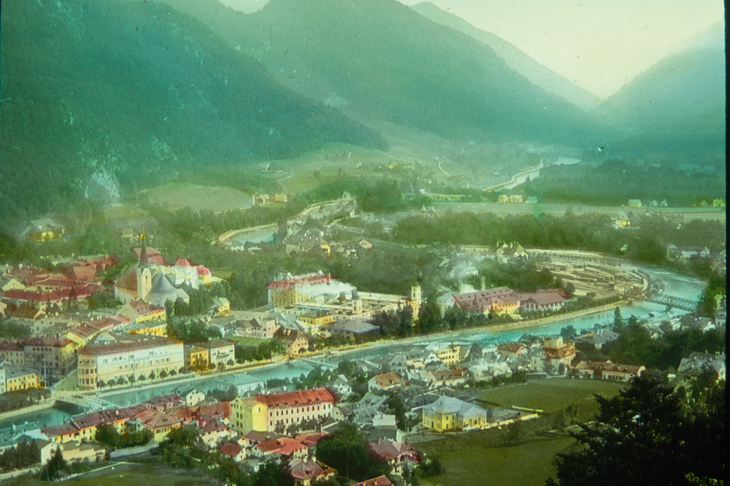


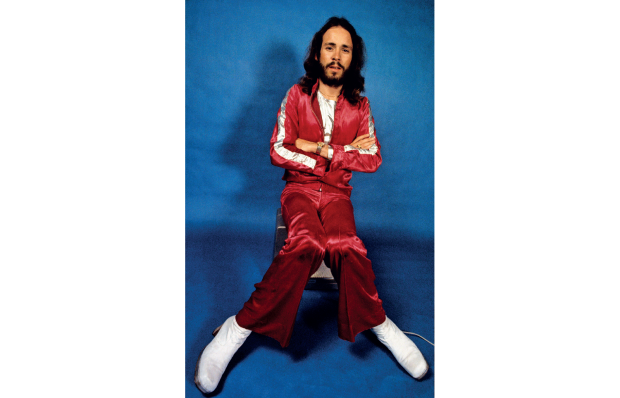
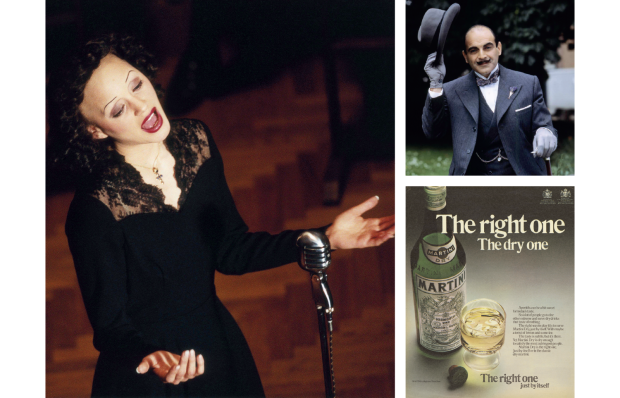
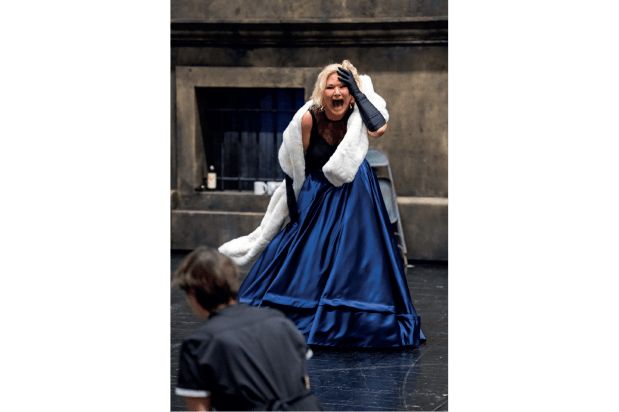
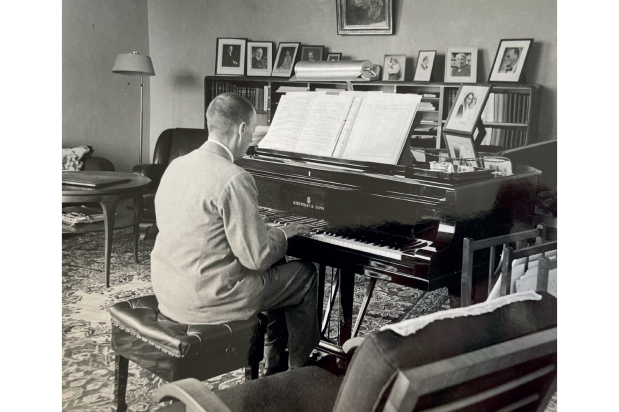






Comments
Don't miss out
Join the conversation with other Spectator Australia readers. Subscribe to leave a comment.
SUBSCRIBEAlready a subscriber? Log in